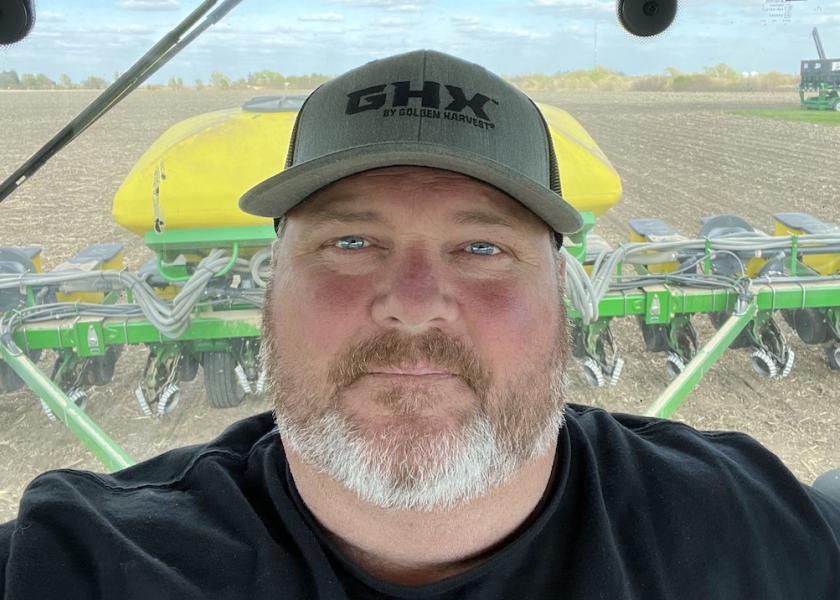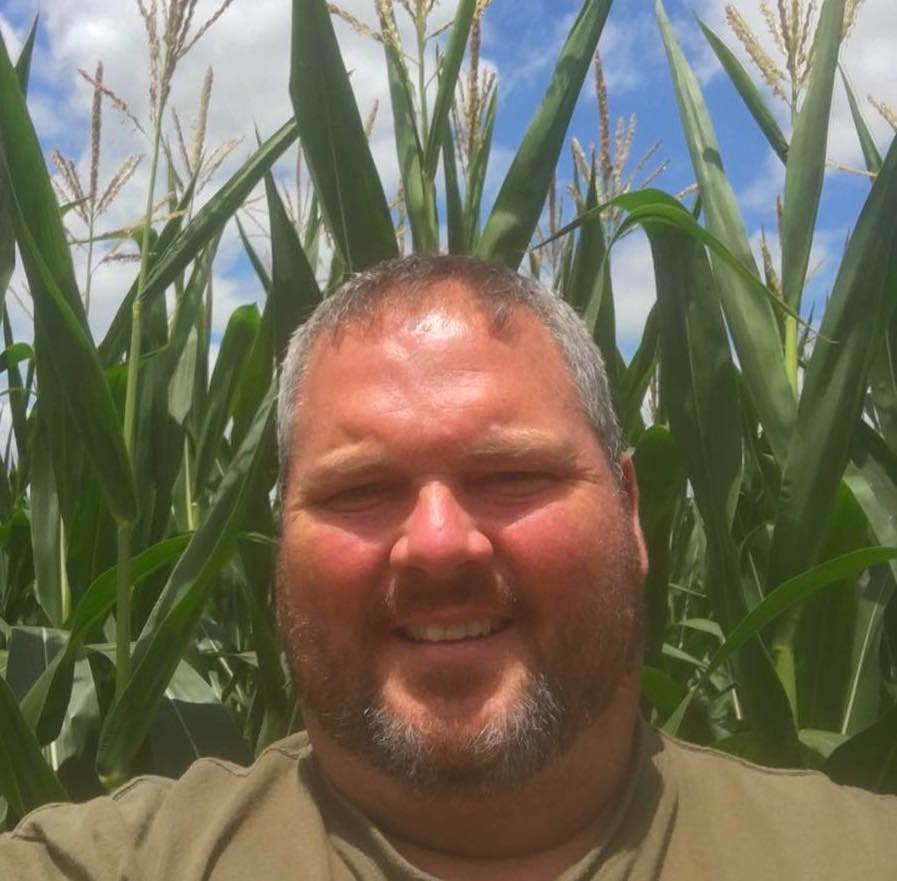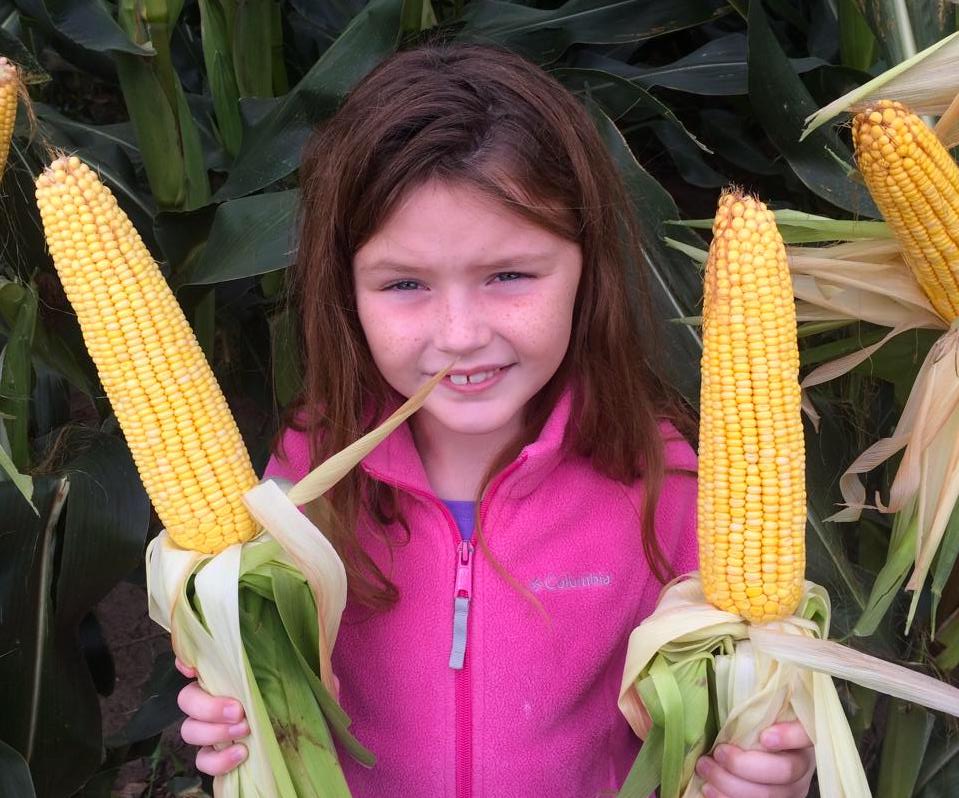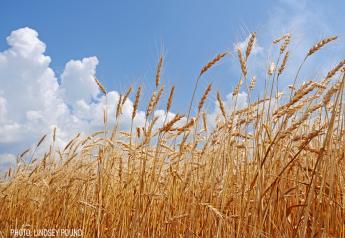Big Corn Yields for Illinois Farmer Rooted to Hybrid and Fungicide

No plow, no pivot, just 300-bushel corn. In 2022, Jack Shissler grew bin-busting 302 bushel-per-acre corn on no-till, non-irrigated ground.
The eye-popping tally gained Shissler a third-place Illinois finish in the National Corn Growers Association Yield Contest, but the high number is only one part of a story including a 260-bpa average for his entire 190-acre field, along with a 243-bpa average across Shissler’s overall corn acreage.
There was no kitchen-sink or experimental approach. “I’m an open book,” Shissler says. “Contest acres or regular acres, I treated everything the same. Boiled down, my yields were about choosing the right variety and applying fungicide. Variety and fungicide—that’s where it was at.”
In-House Rivalry
In west-central Illinois, Shissler, 49, works ground in Knox and Peoria counties, in tandem with his father, Tom, and spends the off-season moving grain in Mason County, alongside his brother, Adam. In total, the Shissler family grows no till corn, green beans, peas, popcorn, and soybeans.
Occupying the best of both topographical worlds, the Shissler farmland is composed of rich black soil atop gentle rolls, with grassy waterways laced through the bottoms. “It’s awesome ground and so fertile,” Shissler says. “We don’t have circles or wet spots, and it’s tiled where needed, with waterways to compensate. Some of our farming friends mow the waterways, bale the grass, and feed their cattle.”
As a former seed corn business family for 50 years, the Shissler’s in-house rivalry heats up each season. “I always want to find something to beat my dad,” Shissler says, while wearing a wide grin. “He is always on the search for the next variety, but when I find something good, I’ll stick tight as long as I can.”
Picket Fence
Every fall, Shissler knifes anhydrous into his ground, backed by N-Serve stabilizer. “We figure on 40 units of nitrogen from our soybean rotation, and we add 160 units for a total of 200. Even with crazy fertilizer prices of the last several years, we’ve never made cutbacks. It’s pretty simple: We put back in whatever nutrients we take out.”

Cover crops are not a concern: “It’s a timing issue,” he says. “The benefit is not worth the time for me. I don’t want to deal with any burndown at planting, and we barely get done with everything as things are right now. It’s not worth throwing in another factor.”
Early April, weather allowing, Shissler plants corn at a 2” depth, usually at a population of 35,500—a bump from his former standard of 33,000. “I want to be at the point where I’m below, but very close to fertility capacity, and 35,500 is working great. I no longer deal with tip back or downed corn, and everything comes up almost perfect.”
Special
On April 19, 2022, Shissler planted multiple hybrids into a 190-acre corn field, with no intention to enter the ground in NCGA’s yield contest. “It’s kind of funny,” he says, “because I’d have picked a different field that would have done better if I was just thinking about the contest. That decision came later, but that’s a good thing in a way because the contest plot was treated in my standard management and nothing extra.”
A year prior, in 2021, Shissler grew Golden Harvest G15J91-V on a small plot and noted big yield—309.7 bpa. In 2022, he grew the hybrid on larger acres, including the NCGA contest area. “It was just another variety competing against the others, and that’s the only way to find out what yields best. I didn’t fudge any numbers. I didn’t use any Miracle-Gro,” he laughs. “It was just a normal part of my regular corn system.”
As the season progressed, Shissler consistently tissue sampled and kept an eye out for tar spot. “We typically spray fungicide twice to fight tar spot. Once you see a crop go to the ground, like I’ve seen in the past with tar spot, you don’t want to see it again.”
Shissler’s rows picked up 7” of rain between June and the end of August. Going into October, Shissler knew the 190-acre field was yield-heavy: “I’ve hit 300-bushel yields before and I’m not a big talker, but you could see we had a good chance to cut some special yields.”
$35 To Get $65
Anticipation building, Shissler rolled into corn and began seeing big numbers pop on his yield monitor, sometimes bouncing to 333 bpa in some spots. “It was pumping yield,” he describes. “You can always tell when you’re picking really, really good corn because it just seems greener. That’s the way this was.”
Tale of the tape: Shissler’s yield of 302.2672 with Golden Harvest G15J91-V claimed third place in the no-till, non-irrigated category for Illinois. Overall, the 190-acre field averaged 260 bpa. (His whole-farm average was 243 bpa.)

What was Shissler’s takeaway? He attributes the high yield to three factors: Stand, hybrid, and fungicide.
Stand: Planting mistakes haunt until the end of the year, Shissler emphasizes. “The seed has to go in right and there is no second chance. Getting that ideal stand is crucial and that means paying attention to all the little details right out of the gate. For example, 35,500 is right what my fertility can handle.”
Hybrid: “I can only tell people about my ground, but when I find a variety that works—like Golden Harvest G15J91-V—I latch on and I’ll put half my acres in it next year. Farmers think they all have the best and maybe they do, but come ride in my combine and you can see these yields. Variety makes a real difference.”
Fungicide: Money well spent, according to Shissler. “Fungicide is the key for us. It can be a 50-bushel difference when sprayed twice, the second time around pollination. Some guys won’t spend the money, but maybe they haven’t seen these huge yields. When you’re talking about profitability, then it’s a total necessity to spend $35 per acre to get $65 per acre.”
1000X
In less than a decade, Shissler’s average corn yields have climbed 30 bushels. “I’ve got no secrets and all I can tell guys is that variety and fungicide are very big deals in my yields every year. It also feels really good to hit a big number in a contest, because it’s an example of what’s happening on my farm ground.”
However, Shissler’s satisfaction is far deeper than agronomics or yield monitor numbers. His bottom line is family. “I was born to farm and all these years, even more than doing good on my ground, what I really worked hard at was to make my dad proud. As long as my dad thinks I did good, then that is worth a thousand times more than a contest.”
“Our camaraderie just keeps getting stronger the older I get, and I can’t get enough of that dynamic in our lives,” Shissler adds. “The pat on the back I got from him at the end of this year when I grew over 300-bushel corn was the only recognition I’ll ever need.”
For more from Chris Bennett (cbennett@farmjournal.com 662-592-1106) see:
Priceless Pistol Found After Decades Lost in Farmhouse Attic
Cottonmouth Farmer: The Insane Tale of a Buck-Wild Scheme to Corner the Snake Venom Market
Tractorcade: How an Epic Convoy and Legendary Farmer Army Shook Washington, D.C.
Bagging the Tomato King: The Insane Hunt for Agriculture’s Wildest Con Man
Young Farmer uses YouTube and Video Games to Buy $1.8M Land
While America Slept, China Stole the Farm
Bizarre Mystery of Mummified Coon Dog Solved After 40 Years
The Arrowhead whisperer: Stunning Indian Artifact Collection Found on Farmland
Fleecing the Farm: How a Fake Crop Fueled a Bizarre $25 Million Ag Scam
Skeleton In the Walls: Mysterious Arkansas Farmhouse Hides Civil War History
US Farming Loses the King of Combines
Ghost in the House: A Forgotten American Farming Tragedy
Rat Hunting with the Dogs of War, Farming's Greatest Show on Legs
Evil Grain: The Wild Tale of History’s Biggest Crop Insurance Scam







